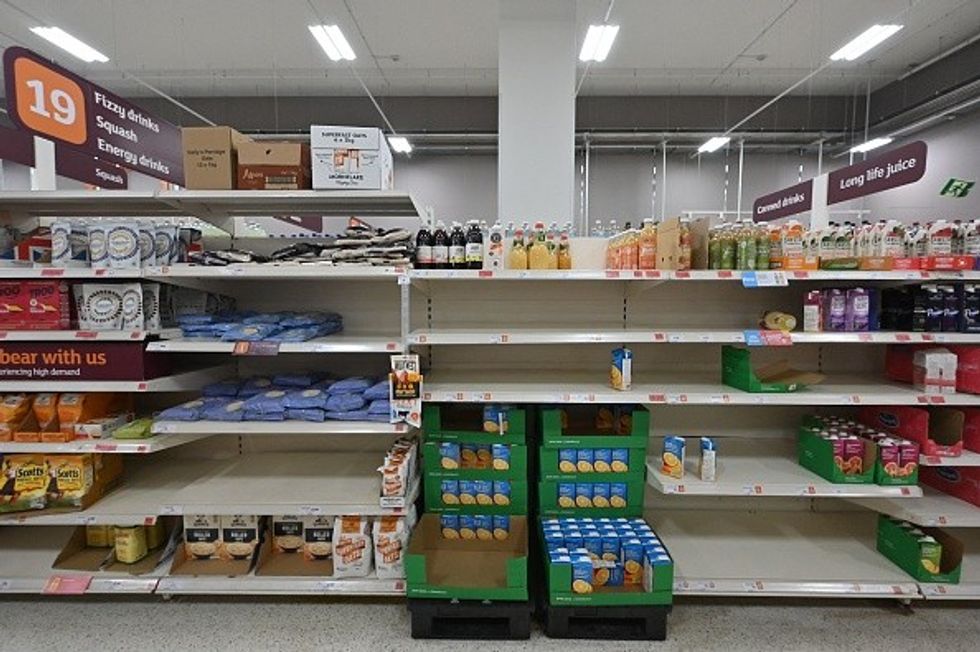Downing Street on Friday (10) has strongly opposed the suggestions made by the head of a UK trade body that food shortages in UK supermarkets will be permanent.
Reacting to the claims made by Ian Wright, head of the Food and Drink Federation on Friday (10) that days of having ample choice and variety in British supermarkets "was over for good", Downing Street said it did not recognise the statement.
“We have got highly resilient food supply chains which have coped extremely well in the face of challenges and we believe that will remain the case,” prime minister Boris Johnson’s spokesperson said.
The Downing Street’s spokesperson added that the government is aware of “some issues facing the sector” but believes supplies will be back to normal by Christmas.
On being questioned whether the shortages will ease to allow people to enjoy a “normal Christmas”, prime minister Boris Johnson’s spokesman told The Independent: “I believe so, yes.”
Shoppers have been facing fewer options than usual after a combination of the Covid-19 pandemic and post-Brexit immigration rules have reportedly led to supply disruption and labour shortages across the industry.
Wright has earlier claimed that shortages of products – caused, in part by a lack of HGV drivers impacting the food supply chain – will “get worse” and not better “any time soon”.

Speaking at an Institute of Government event, Wright said that the result of the labour shortages is that “the just-in-time system that has sustained supermarkets, convenience stores and restaurants – so the food has arrived on shelf or in the kitchen, just when you need it – is no longer working”.
“And I don’t think it will work again, I think we will see we are now in for permanent shortages.”
“It’s going to get worse, and it’s not going to get better after getting worse any time soon,” Wright told listeners at the event, adding that suppliers would be forced to prioritise some products over others.
The food and drink industry is short of around half a million workers, Wright said, implying a shortage of about one in eight of the total number of people it needs in its workforce. The lack of lorry drivers is partly caused by them moving to online retailers and starting to deliver for Amazon and Tesco – to get better hours and pay, he said.
The clash came as the government turned down the industry calls to loosen post-Brexit immigration rules, saying that the businesses must rely on domestic workforce rather than foreign workers.
McDonald’s, Greggs, the Co-op and Ikea are some of the big retailers that reported struggles in supplying products to their customers in recent weeks.
The CBI business group has also warned the labour shortages behind the gaps on shelves and restaurant menus could last up to two years, without urgent government action.






